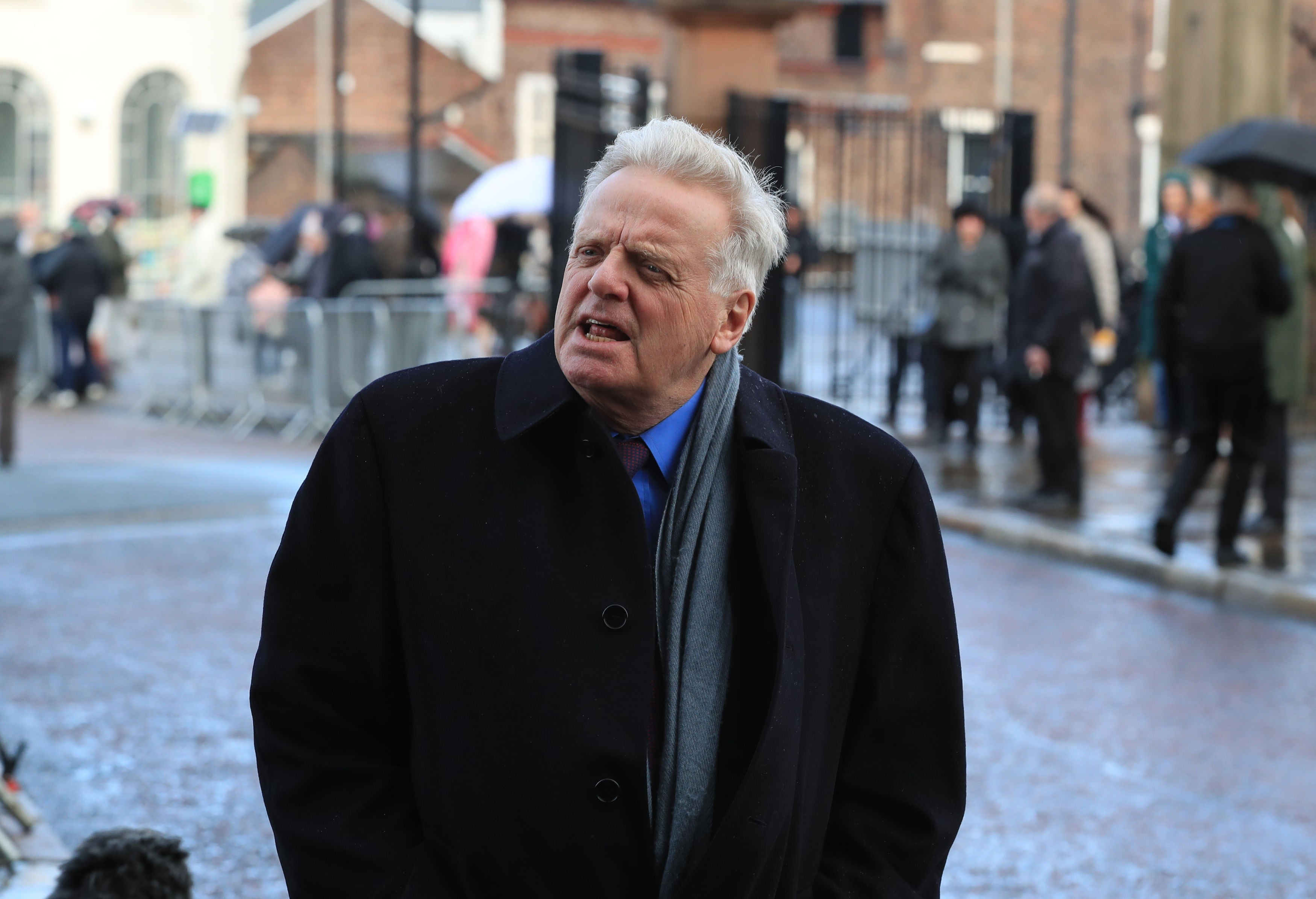Ofcom boss Lord Grade says watchdog should not regulate ‘culture wars’
The former TV executive made his first major public address on Tuesday since taking on the Ofcom role in May.

Your support helps us to tell the story
From reproductive rights to climate change to Big Tech, The Independent is on the ground when the story is developing. Whether it's investigating the financials of Elon Musk's pro-Trump PAC or producing our latest documentary, 'The A Word', which shines a light on the American women fighting for reproductive rights, we know how important it is to parse out the facts from the messaging.
At such a critical moment in US history, we need reporters on the ground. Your donation allows us to keep sending journalists to speak to both sides of the story.
The Independent is trusted by Americans across the entire political spectrum. And unlike many other quality news outlets, we choose not to lock Americans out of our reporting and analysis with paywalls. We believe quality journalism should be available to everyone, paid for by those who can afford it.
Your support makes all the difference.The new chairman of Ofcom has said the broadcasting watchdog “does not, and should not” regulate the so-called culture wars.
In his first major public speech since his appointment to the role in May, Lord Michael Grade stressed Ofcom’s independence from “personal preference” and “political pressure”.
The former television executive, who has held senior positions at the BBC, ITV and Channel 4, was addressing the RTS London Convention 2022 as its UK keynote speaker.
He suggested public debate had descended into “angry battlefields of bitter division” before adding: “Why does this matter to Ofcom? Here, I want to be very clear: Ofcom does not, and should not, regulate the culture wars.
“Some try to conscript us to their cause. But we’re not interested. That is not our job.
“Whether we are judging that Piers Morgan’s comments about the Duchess of Sussex were justified by freedom of expression, or that Diversity’s tribute to the Black Lives Matter movement was too – we never make decisions based on personal preference, political pressure, fear or favour.
“Instead, we all leave our various opinions at the door. We focus on the legal framework and duties given to us by Parliament, and make careful, balanced decisions based on the evidence.”
Lord Grade, who was previously a Conservative peer, said Ofcom should not seek “to regulate the tone of debate on social media, either now or through our new duties”.
He added: “Nonetheless, I care on a personal level – as I’m sure you do too – about the need for tolerant debate.
“That matters to me not just as a citizen and parliamentarian, but also as somebody who has sought to champion our world-class broadcasting sector.
“Because broadcasting has a unique ability to provide a fair, accurate and trustworthy platform for calm, considered differences
Our role is to provide research and evidence, to adapt our regulation and to inform Parliament about policy options and their impact
“Those views are more necessary than ever for a stable society and a strong democracy.”
Before his appointment, Lord Grade spoke in favour of the privatisation of Channel 4 and criticised the BBC’s coverage of events such as the Downing Street parties as “gleeful and disrespectful”.
But he said his personal opinions would be put to the side in his role as Ofcom chief.
Speaking about the future of the public service broadcasters (PSBs), he said: “Well, before I joined Ofcom, or even thought about applying, I was never shy about expressing views on this.
“But personal opinions – especially mine – are not the currency of Ofcom’s work.
“Our role is to provide research and evidence, to adapt our regulation and to inform Parliament about policy options and their impact.”
Lord Grade said there are “long-term questions” to answer with respect to the PSBs.
“BBC funding, Channel 4 ownership, and how legislation might level the playing field where PSBs compete with US streamers. These are matters for Government and Parliament, not Ofcom,” he said.
However, he added that they should be protected, saying: “For all these reasons, any proposed changes to the PSB framework must be tested against their potential impact on investment in our creative industries.
“Quite simply, these achievements have been a triumph of public policy. We must do nothing to put them at risk.
“I am certain Parliament will have that in mind as it reviews the current arrangements.”